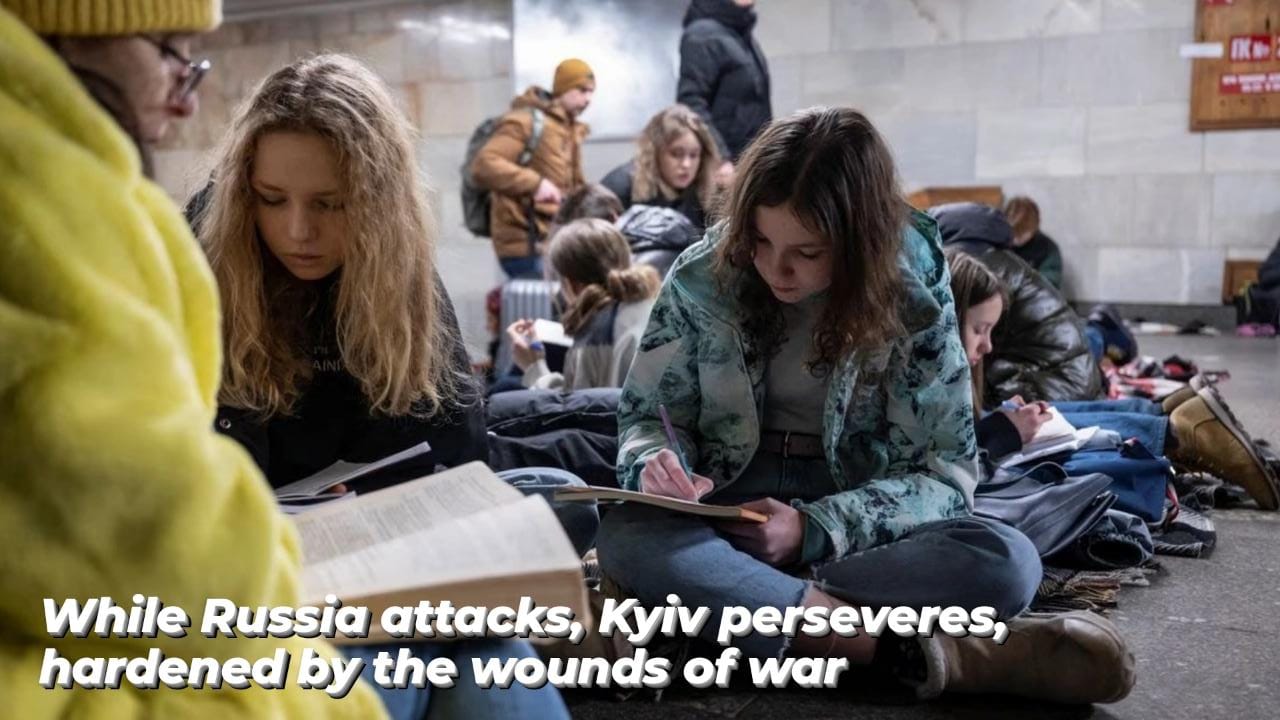
One morning in the middle of February, a group of high school students sat against the walls of a metro station, writing in notebooks and paying attention to their teacher Olena’s instructions as missiles sped across Kyiv’s skies.
She had moved her class immediately underground when the air-raid sirens sounded in order to prevent the lesson from being disrupted by yet another Russian attack.
According to the regular schedule, we teach math, biology, chemistry, and other subjects, according to Olena, who would not give her last name to Reuters.
This and other indications of composure and fortitude, such as bars that are busy despite the possibility of missile and drone attacks or tour guides who have tailored city tours to the needs of war, are becoming more typical in the capital of Ukraine.
Russia’s invasion, which started almost a year ago, has upended life but also united a nation.
In the days following the assault on February 24, the majority of the city’s 3 million inhabitants took refuge inside or below ground as the Ukrainian army repelled Russian forces on land and in the air.

Post Your Comments